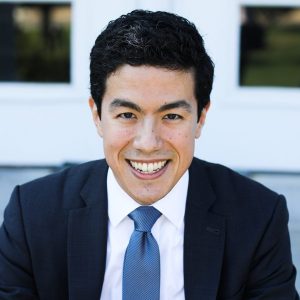Editor’s Note: In this BC Law Magazine “Vision Project” series, we are engaged in a lengthy discussion with Boston College Law School faculty about where the Covid-19 pandemic and its attendant medical, economic, racial, and political consequences may lead us. As New York Times op-ed columnist Timothy Egan so eloquently put it recently, “Every crisis opens a course to the unknown. In an eye-blink, the impossible becomes possible. History in a sprint can mean a dark, lasting turn for the worse, or a new day of enlightened public policy.” There are warnings and worries in these professors’ views, but there are also farsighted ideas and strategies for crafting a better future, a more just society, and a world in which each and every human being is equal under the law.

What has the coronavirus pandemic revealed about the strengths and weaknesses of our understanding of criminal law and international law? Covid-19 exposes vulnerabilities: immunological, socioeconomic, political, racial, and epistemic. And it exposes the central, contemporary fragilities of both criminal law and international law. As a scholar, I write about and teach in both of these legal worlds—for example, my most recent publication, Foreign Affairs Prosecutions, which was published in N.Y.U. Law Review, highlights the stakes for US. criminal cases with a nexus to foreign jurisdictions.
Explain how this plays out in the the areas of criminal justice and criminal law. I’ll break this down into the problem and the solutions.
The Problem: First, the virus tears at US criminal justice in an era of mass incarceration. Mass incarceration is undoubtedly the pivotal criminal legal question of our age: How do we understand and cabin our omnivorous criminal justice system? As is increasingly well known, our incarcerated US population has grown more than seven times since the 1970s. Today, the US prison population constitutes 22 percent of the world’s prisoners, even though we are just 4 percent of the global population. And recent events regarding George Floyd’s murder have highlighted the disparate impact on communities of color, who are disproportionately targeted by police, convicted, and then incarcerated.
The virus thus hits our criminal justice system where it hurts most: Given its high rate of transmissibility, Covid-19 is tearing through prison populations at an alarming rate. Unfortunately, what we see now is a haphazard, fragmented approach to medical treatment and prisoner release. This is largely due to the fact that criminal justice is local: the United States has within it fifty unique criminal justice systems, plus a federal one. So the reality is that any sort of reform is ad hoc as opposed to comprehensive.
The Solutions: My short-term, immediate hope is that these US criminal justice systems will find the most equitable solutions for the health of prisoners, alongside the overarching criminal legal goal of incapacitation. This requires the attention of many stakeholders: political leaders, prison officials, medical experts, and, of course, lawyers engaged in zealous advocacy. My longer-term hope is that this crisis sheds light on the urgent need for reform in our criminal justice system, one that includes a hard look at reducing our gigantic prison population and its disproportionate impact on communities of color.
And what do you see in the internatioal law arena? Again, I’ll break it down into the problem and the solutions.
The Problem: On the international law side, Covid-19 exposes another rising pathology: populism, with its concomitant hostility to international institutions and—even more broadly—expertise of any kind. This, I believe, is the central threat to international law and institutions these days. My working theory is that we’re living in an era of epistemic fragmentation, where the diversity of media sources—traditional, social, and others—have led to tremendous polarization and a strong sense of “I know better.” This is a threat to our national sense of solidarity and meaningful discourse.
This epistemic fragmentation thus unsettles what should be obvious to us: A global pandemic needs a global response. The World Health Organization (WHO) must be integral to such an effort. Unfortunately, rising populism means a hostility to it and other global institutions. I’m not convinced that the WHO has been perfect, but I’m even less convinced that the WHO should be ostracized. Our affirmative US obligation is to lead institutions like the WHO, not alienate and undermine them.
The Solutions: Frankly, I’m very worried about the pathology of epistemic fragmentation and what it means for the future of international law and institutions. I heard Dr. Anthony Fauci say the recently that he was concerned that one third of Americans do not want to be vaccinated once the Covid-19 vaccine is available. This sort of suspicion of expertise and institutions does not bode well for institutions like the WHO, which are even more removed from the lived experience of many of us but nonetheless play a vital role on the global stage.
For now, my hope is that reality will have a way of “cutting through” some of these misapprehensions. For example, the murder of George Floyd was so incontrovertibly horrific that it alerted more people to the pathologies of systemic racism and, in particular, policing in America. Or as another example, certain US state governors may have played fast and loose with statements about the virus’s contagiousness, but now the simple fact of its asymptomatic spread is more evident in the number of Covid-19 cases we’re seeing these days. Perhaps the utility of international law and its institutions will similarly become more evident in this time of crisis.
In sum, Covid-19 exposes criminal justice’s mass incarceration vulnerability and international law’s populism vulnerability. A shared theme between both is the need for comprehensive coordination to a problem that, by definition, crosses borders—both national and international.
Read all faculty Vision Project interviews here.

